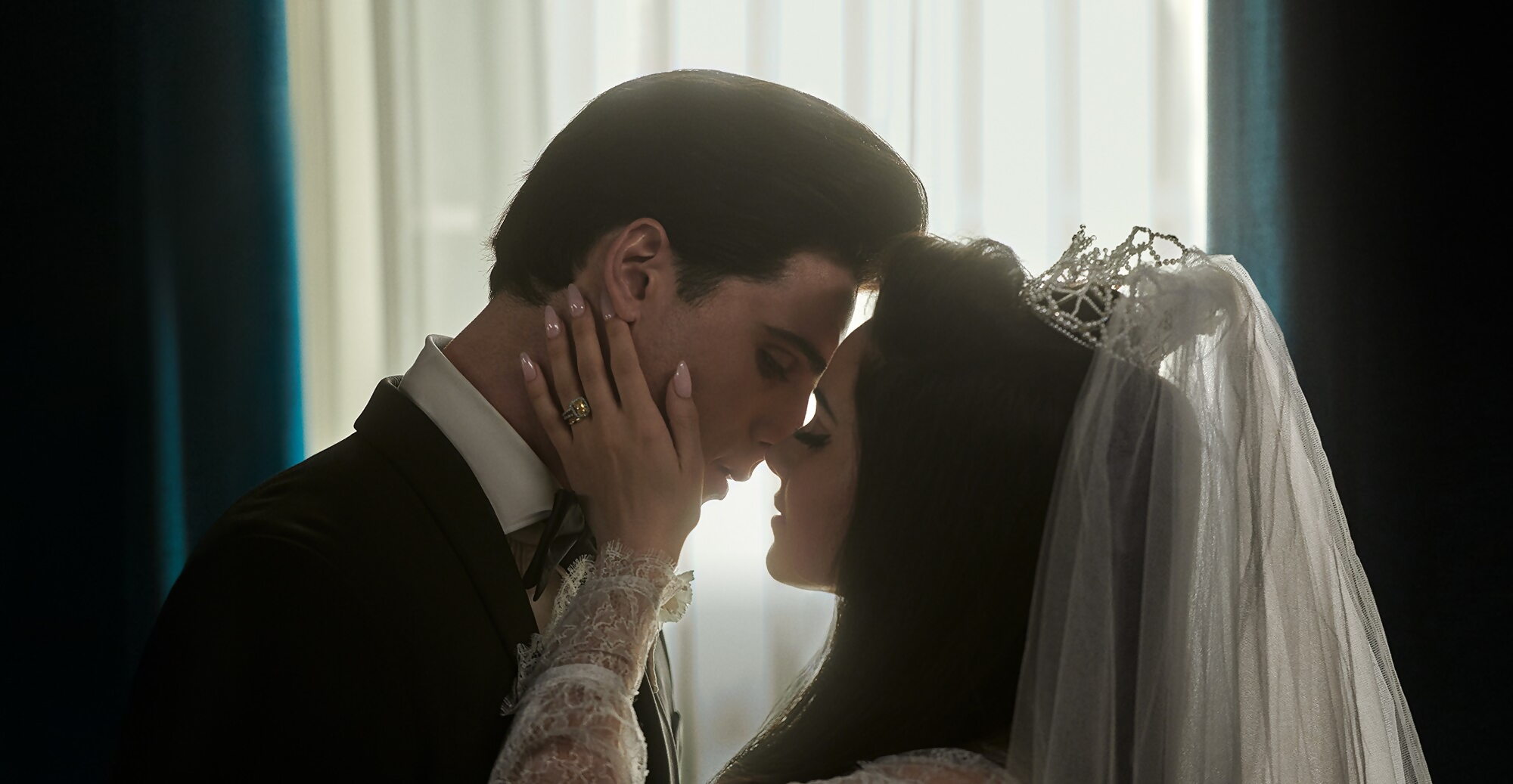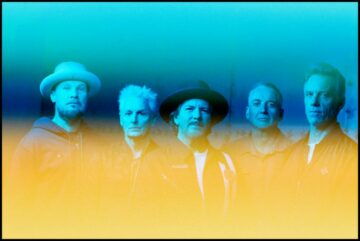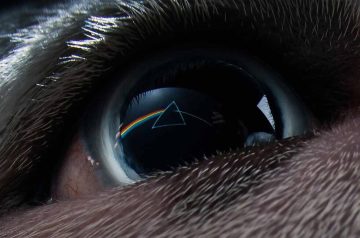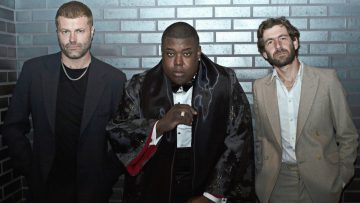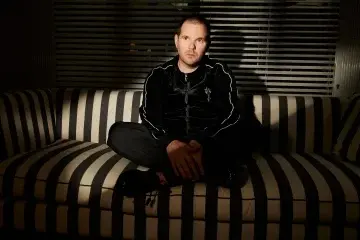★★★★☆
Sofia Coppola tackles the early life of Elvis’ first and only wife, Priscilla Presley, in this impressively controlled coming-of-ager. Read our Priscilla review.
Above image credit: Philippe Le Sourd
Just over a year after the bombastic, maximalist vision of Baz Luhrmann’s Elvis, Sofia Coppola’s latest feature – her eighth to date – takes a completely different route on a well-trodden story, finding its rhythms in slow fades and soft peaks.
Seeking to explore a similar subject matter from the point of view of Elvis’ only wife, Priscilla is certainly a film that slots comfortably within the established Coppola canon, heavy with her usual themes of ennui, celebrity, fractured relationships and lives played out in the shadows of others. But it also comes with an impressive, intelligent restraint that really creeps up on you.
While it’s true that no person is strictly qualified to tell another’s story, Coppola – the daughter of an incredibly famous director who has often been hailed a genius – capably proves herself to be a sympathetic fit for the material at hand. As always, you sense the movie is about her as much as it is her characters – in this case, her deep understanding of life in a gilded cage works in the film’s favour.

Credit: Sabrina Lantos
On a script level, this is a notably stripped back effort, but one that’s rich with this filmmaker’s careful compositions and detailed production design, capturing a formative period with the melancholy of her Somewhere and the sadness of The Virgin Suicides.
We first meet a fourteen-year-old Priscilla (Cailee Spaeny) in 1959, at the point where Elvis comes into her life. The daughter of a soldier based in Germany, she’s invited to attend a party at the house where Elvis – drafted in the US military – has been allowed to live off-base. After barely convincing her parents to let her go, she forges an instant connection with the already famous rock star. “He trusts me,” she tells her worried parents. Like them, we can’t help but wonder what he sees in a kid.
READ MORE: The Killer review | A highly functional but all too familiar hitman thriller
But then Elvis goes away, leaving her listless and unable to concentrate at school. When he finally reemerges, a long time later, Priscilla is whisked off to Graceland, only to be installed as part of the furniture.
Though told in something of an episodic fashion, Priscilla is interesting for the ways it actively challenges itself to be a movie about a person who would typically be a secondary character, and who is – for all intents and purposes – unextraordinary. Is there value, it seems to wonder, in focusing on somebody whose world, for a time, was hinged entirely on their adoration for somebody else?
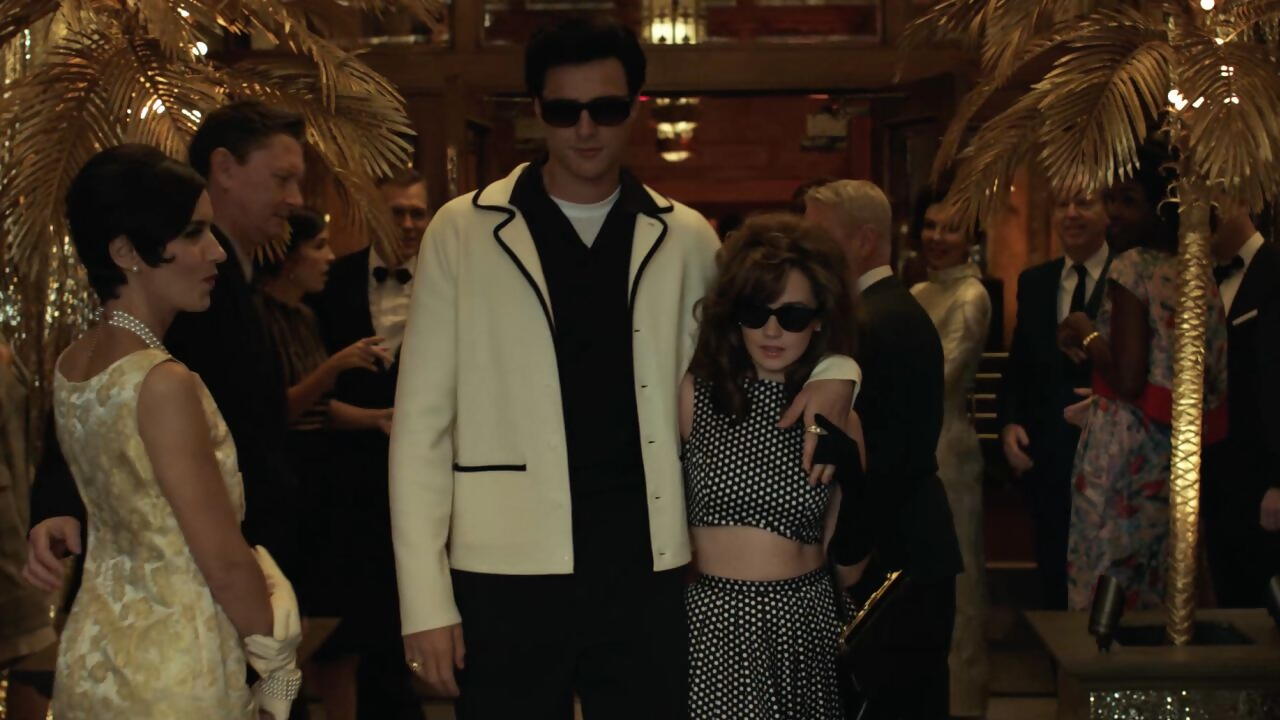
Credit: MUBI
Coppola pulls it off by emphasizing the moments of quiet isolation that will eventually lead Priscilla to take her destiny into her own hands, cutting in scenes of extreme highs and lows across their six-year marriage, while often keeping her camera at a distance and inviting us to read into small details.
The movie is careful not to reveal too much – we don’t really get a sense of the first time they sleep together, for example, and things are often suggested rather than outright stated. It works, because the idea is that we’re watching the approximation of a felt experience, rather than the usual filmed Wikipedia page.
Despite the title, the focus here also falls equally on Elvis. That had to be the case, because Priscilla’s life is about waiting around, placating him, wondering when she will read about his next affair in the paper. Priscilla is so young when they meet, overwhelmed by his presence and his fame, unable to possibly imagine saying no to his requests of courtship – and it’s in this state of eternal youth that Elvis would like her to stay. All the more reason for Philippe Le Sourd’s lush cinematography to make Graceland a darker, more oppressive place than it likely was in reality, rendering it – at points – as less of a palace and more of a prison.
Cailee Spaeny impresses massively in a restrained, tricky performance as Priscilla – subtly emotive and bearing a bearing a great physical likeness to the real Priscilla, she captures the child years with the right degree of awed naivety, yet avoids the trappings we often get when an adult actor plays a “teen.” At first we wonder if the actress might be giving too little, but as Priscilla gets older, Spaeny adjusts her performance to fit the age, and the acting work of those early years grows in our estimation. You really do believe that this 25-year-old actor is just fourteen.
And while there was some (perhaps justified) concern over the casting of Jacob Elordi, best known for his role in The Kissing Booth movies, as Elvis, it needn’t be the case: he more than holds his own playing one of the most famous people in history, nailing the voice but swerving caricature as to give us a very flawed and very human Elvis, all without sacrificing the necessary charisma. It’s a huge step-up for the actor that should win him some worthy notices.
As for its depiction of Elvis himself, the movie doesn’t exactly qualify as a hit piece, though being based on Priscilla’s own experiences – and her bestselling book – it isn’t afraid to show him, in moments, as a philanderer and a liar, prone to moments of deep insecurity and even capable of violence. The circumstances of their initial meeting is presented without moral judgment, asking us to make up our own minds on a situation that has no easy answers. Yet Coppola does also allow moments of romance to come through, however questionable the circumstances surrounding this story.
This being a Sofia Coppola movie, it’s also packed with unusual, expert needle drops, complete with a masterful use of a Dolly Parton classic, deployed during the moving and brilliantly abrupt ending, which seems to cut us out right at the moment where Priscilla’s life can really begin. True, nothing here shows Coppola attempting to transform our perceptions of her as a filmmaker. But her film is deceptively simple rather than underbaked: a fragrant bildungsroman that eventually arrives upon a real clarity of vision.
Priscilla received its world premiere at the Venice Film Festival. The film will also screen at the BFI London Film Festival. Priscilla will arrive in select UK and Irish cinemas 26 December with special 35mm screenings before a wider release 1 January, 2024.

